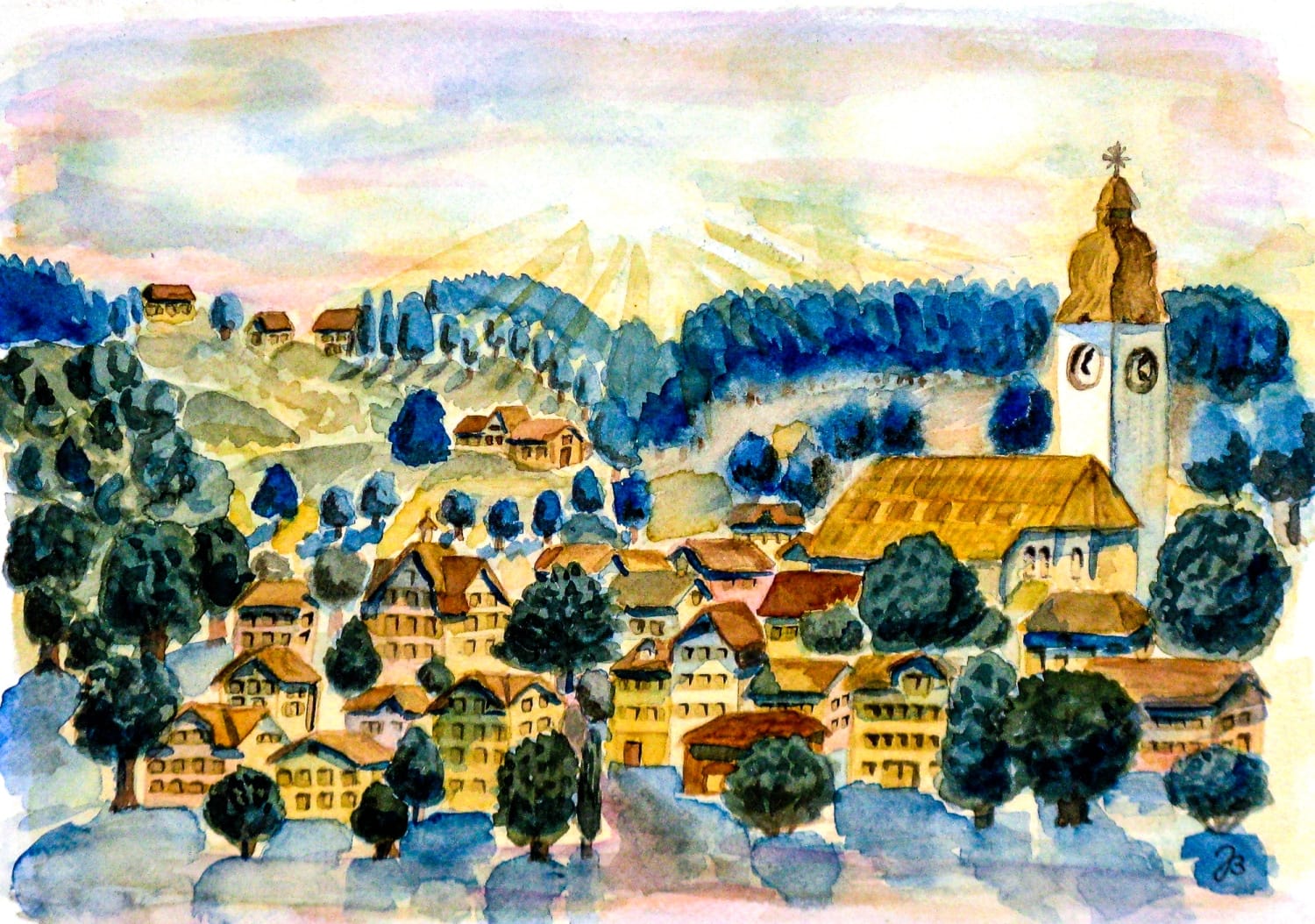Aquarell-Landschaften (2013).
Bilder mit Landschaften ziehen sich wie ein roter Faden durch mein künstlerisches Schaffen von Anfang an. Bereits die ersten fünf Aquarelle die ich 1998 malte waren Landschaften. 1999 folgte eine Serie von Aquarell-Landschaften in der Wachau. 2013 waren Aquarell-Landschaften das Thema einer Ausstellung in Wien und 2019 waren es Österreichische Seenlandschaften in Acryl Spachteltechnik. Auch die dreiteilige Horizonte-Serie hat Landschaften zum Thema.
Ausstellung 2013 – „In 30 Bildern um die Erde“.
Die Ausstellung 2013 mit dem Titel „In 30 Bildern um die Erde“ zeigte großteils Aquarell-Landschaften im Format 30×40 cm von China bis Hawaii.
Ich begann diese Serie von Aquarell-Landschaften im August 2013 während eines Urlaubs in den Niederlanden zu malen. Schon im Vorfeld der Ausstellung im CVJM Wien im November 2013 habe ich eine ganze Reihe verkauft und manche Bilder entstanden auch erst nach der Ausstellung. Einzelne Bilder entstanden während meines Studiums an der Kunstakademie. Das letzte Bild entstand Anfang 2016. Es war meine längste Serie. Inzwischen gehören mehr als 50 Bilder dazu.
Die meisten Bilder entstanden als Plein Air Malerei oder basieren auf meinen eigene Fotos. Ein paar wenige hatten Urlaubsbilder von Freunden und Bekannten als Grundlage.
Fotogalerie Aquarell-Landschaften
Im folgenden Album können Sie den Großteil dieser Aquarell-Landschaften ansehen:
















































